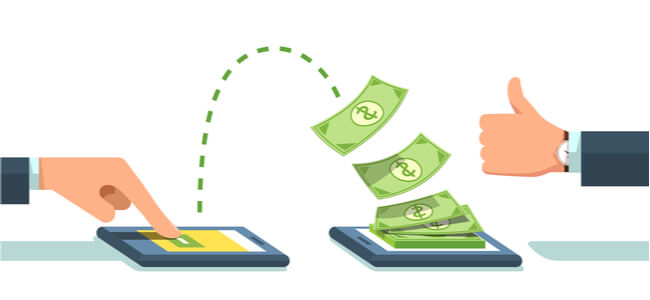How To Write An Overdue Invoice Letter

With over 62% of all invoices paid past the due date, late payment is a serious problem for many businesses. It can affect cash flow and also create immense financial uncertainty. Find out when to write overdue invoice letters, and how to avoid late payments in the first place.
How Invoicing Software Can Prevent Late Payments
Chasing up on late payments is unpleasant, to put it mildly. You can avoid all this hassle by signing up for credible invoicing software which will automate many of the tasks you need, helping ensure payments arrive on time.
Here are some of the features that can help achieve this:
- Creation of custom reminders and messages
- Client management features to keep a tab on late-paying clients
- Access to insightful reports based on the payment history of customers
- Creation of a sequence of reminders with the help of a drip campaign
- Multiple payment methods offered to facilitate transactions
As you can see, there are many features that automated software provides that will minimize your chances of late payments. Prevention is always the best cure after all. However, if you do find yourself in a position that you need to send a letter, read on to find out how.
When To Send A Letter
Did you know that regularly following up on late payments increases your chance of getting paid by 47%?
While sending a past due invoice letter one day before the actual due date increases your chance of getting paid on time, there are many other ways to go about it. For example, you can set up a chronological string of actions which would be automated using a quality software provider:
- Sending a reminder 2 to 3 days after the due date
- Sending another notification 1 week later, and again 2 weeks later
- Sending an email after 30 days
- Following up with a past due invoice email after 60 days
- Following up again after 90 days
Info To Include
Knowing how to write an invoice is one thing. To create a thorough and effective invoice overdue letter, merchants should be more attentive and include the following details:
- Invoice Number: This is the number or code that helps to identify the original bill
- Invoice Date: Always add the date that the invoice was issued
- Due Date: This specifies the original due date in question
- Owed Amount: This is the outstanding invoice amount
- Details Of Service Given: As much information as possible is useful
- Current Due Amount: The total invoice amount with overdue fees factored in
- Attachments: It is important to send the original agreement or contract along with the overdue letter to validate the bill
Language and Tone
- Maintain a friendly tone for invoices delayed by up to 30 days
- Follow through on invoices delayed by 30 to 60 days with an unwavering yet diplomatic tone to establish urgency
- Indicate that your collection agency will reach out to the client for invoices delayed beyond 90 days
All in all, the letter needs to be comprehensive, fact-based, and firmly adhere to agreed-upon terms or overarching laws.
Late Penalties
Remember, merchants cannot enforce late fees out of the blue. You need to discuss and agree on any late payment fee with the client at the time of stipulating payment terms.
Typically, late payment of invoices is charged as a flat-rate fee or based on a percentage of the total invoice amount. This is because every state has unique laws associated with late payment interest charges and suppliers must abide by them.
Offering A Payment Plan
If your client is unable to pay the bill, you can still get paid by introducing an installment billing schedule. In this case, the total invoiced amount is broken up into installments.
For example, if your client purchased a service that costs $7,500 on May 1, instead of asking the client to pay the total amount at once, offer for them to pay in installments, like in the example below:
- $2500 due on May 30
- $2000 due on June 30
- $1500 due on July 30
- $1500 due on August 30
Conclusion
Business owners have many courses of action available when their customers are late to pay. However, if you really want to minimize this happening in the first place, invest in online invoicing software. FreshBooks is one such software that offers client management, automated reminders, late fees, and many other useful functions and integrations.



